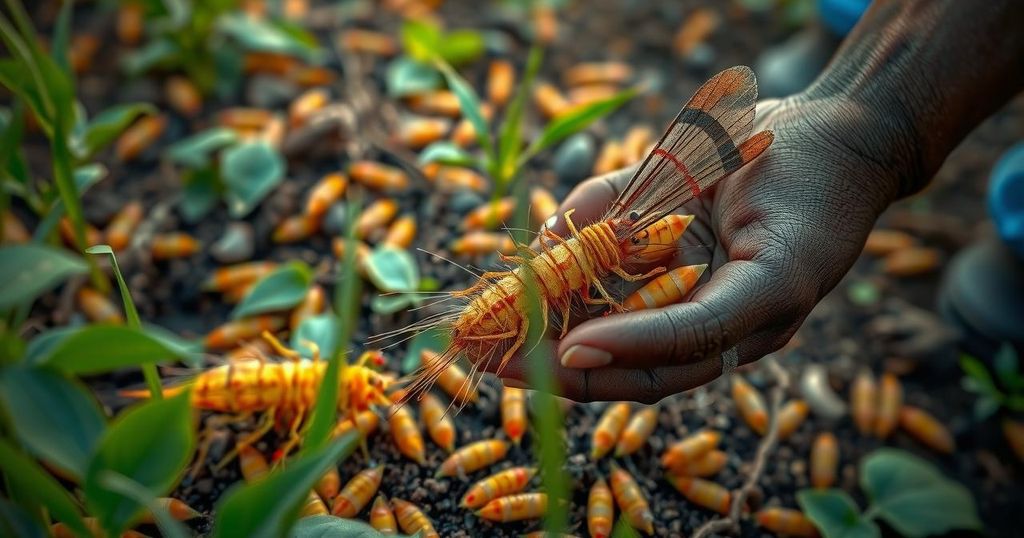Maggot Farming in Zimbabwe: A Sustainable Solution to Drought Challenges
Zimbabwean farmers are increasingly turning to maggot farming as a viable solution to food insecurity exacerbated by drought. Initially wary of the practice due to health concerns, farmers like Mari Choumumba have found that raising maggots provides a protein-rich feed for poultry, significantly reducing costs. This innovative practice not only helps sustain livelihoods but also contributes to environmental waste reduction.
In Nyangambe, Zimbabwe, some farmers, initially skeptical about breeding maggots due to concerns over their association with diseases such as cholera, have turned to this unconventional practice to counter the effects of drought. With traditional crops like corn failing, Mari Choumumba and others are utilizing maggots from black soldier flies—harmless compared to other fly species— to create protein-rich feed for poultry. This process reduces feed costs significantly, allowing farmers to optimize their production and enhance their livelihoods. By converting organic waste into viable animal feed, maggot farming not only addresses food security in the region but also contributes to waste management and environmental sustainability.
The issue of food insecurity in Zimbabwe has been exacerbated by recurrent droughts negatively impacting traditional staple crops such as corn. Farmers are increasingly looking for innovative ways to cope with these adversities. The black soldier fly, whose larvae can effectively convert organic waste into high-protein animal feed, has emerged as a feasible solution. Introduced as part of various agricultural initiatives, maggot farming also aids in waste management, recycling a significant amount of the nation’s organic refuse while offering a sustainable alternative to conventional feed sources.
In summary, maggot farming represents a transformative adaptation strategy for Zimbabwean farmers facing climate-induced challenges. This innovative practice not only contributes to alleviating food insecurity by providing affordable and nutritious feed but also plays a critical role in effective waste management. As more farmers recognize the advantages of this approach, it could pave the way for broader agricultural resilience in the face of ongoing environmental changes.
Original Source: apnews.com




Post Comment